Search
Did you mean: Phoenicia?
Remove Ads
Advertisement
Search Results
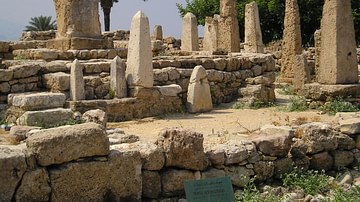
Definition
Phoenician Architecture
Phoenician architecture is typified by large temples with double-columned facades approached by a short staircase, enclosed sacred spaces containing cube-like and open-fronted shrines, and such large-scale engineering projects as dams and...
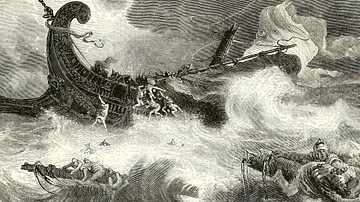
Definition
Yamm
Yamm (from the Semitic word yam for 'sea', also known as Yam and Yam-Nahar) was the god of the sea and storm in the pantheon of the Canaanite-Phoenicians. Depicted consistently as tyrannical, angry, violent, and harsh, Yamm was the brother...
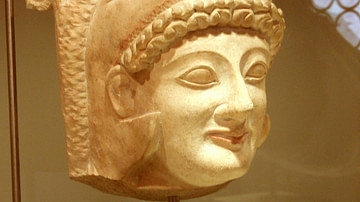
Definition
Melqart
Melqart (also Melkarth or Melicarthus) was an important Phoenician god and patron deity of the city of Tyre. Associated with the monarchy, sea, colonization, and commercial enterprise, both at home and abroad the god is a significant, if...
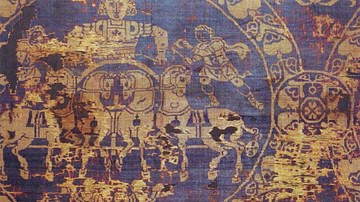
Definition
Tyrian Purple
Tyrian purple (aka Royal purple or Imperial purple) is a dye extracted from the murex shellfish which was first produced by the Phoenician city of Tyre in the Bronze Age. Its difficulty of manufacture, striking purple to red colour range...
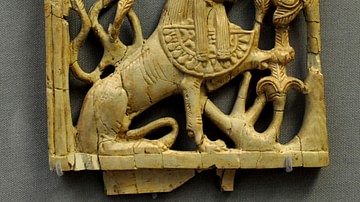
Definition
Phoenician Art
The art of the ancient Phoenicians, which flourished between the 19th and 4th centuries BCE, was exported throughout Mesopotamia and the ancient Mediterranean. Best known for their work on small decorative objects, Phoenician artists skillfully...
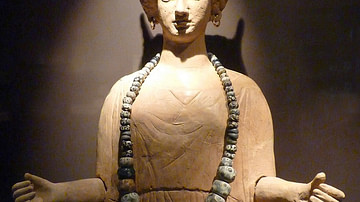
Definition
Carthaginian Religion
Carthage was founded by the Phoenician city of Tyre in the 9th century BCE, and along with many other cultural practices, the city adopted aspects of the religion of its founding fathers. Polytheistic in nature, such important Phoenician...
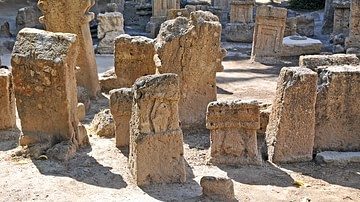
Definition
Tophet
The tophet (also topheth) was a sacred precinct usually located outside cities where sacrifices and burials were made, especially of young children, in rituals of the Phoenician and then Carthaginian religion. The tophet is the most evident...
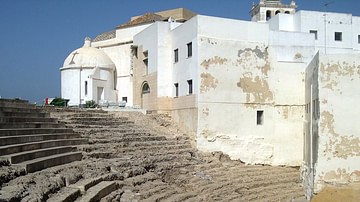
Definition
Gades
Gades (modern-day Cadiz, Spain) was an ancient city located on the island of Erytheia, northwest of Gibraltar at the tip of the Iberian Peninsula and is believed to be one of the most ancient cities still standing in Western Europe. Although...
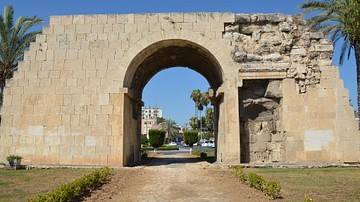
Definition
Cilicia Campestris
Cilicia Campestris was one of the six districts of the Roman province of Cilicia organized by Pompey the Great (l. c. 106-48 BCE) in 64 BCE. The name translates roughly into “Cilicia of the Plains” and corresponds to the earlier name for...
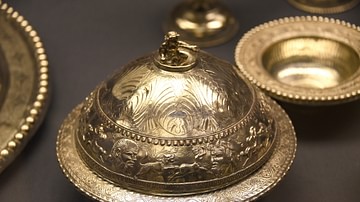
Definition
Silver in Antiquity
Silver had great value and aesthetic appeal in many ancient cultures where it was used to make jewellery, tableware, figurines, ritual objects and rough-cut pieces known as hacksilver which could be used in trade or to store wealth. The metal...